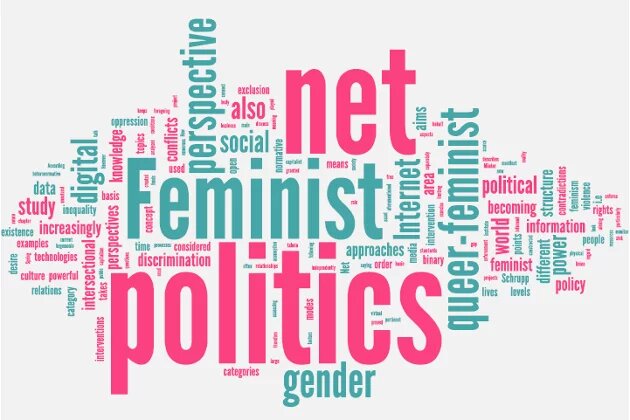
Digital technologies and the Internet are increasingly permeating peopleʼs lives. They are becoming increasingly important in our daily lives, the world of work and business, political processes and the production of culture and knowledge, thus making way for new social practices, discourses and structures. The extent to which society changes due to digital media is becoming apparent in contradictions we are currently becoming aware of.
On the Internet, knowledge is no longer a scarce resource. Google and Wikipedia are pertinent examples of how radically access to information is changing. At the same time, knowledge is increasingly being subjected to privatisation. Intellectual property is an asset which capitalist players try to protect by means of treaties, such as ACTA.
New digital public spaces are being created on the Internet (Münker 2009), where people can network and talk politics. Western media and politicians often emphasise the role played by social networks in the Arab Spring, while digital technology is being used all over the world to monitor and control people. The European Union aims to enforce the retention of data and funds projects such as INDECT. Today, security enforcement merely takes fundamental rights into consideration, i.e. the limiting of basic civil rights is taken for granted.
The Internetʼs open standards and its basically open structure allow for computers to connect worldwide and for information to flow freely. At the same time, the power of large corporations keeps growing; it goes without saying that, in global capitalism, they need to find ways to further increase their profits. ‘Free’ information flows and user data become usable resources.
We are at a point that might mark the transition to a ‘digital culture’. The aforementioned contradictions give rise to numerous conflicts at all political levels. Net politics is evolving into a significant and contested policy area. Political struggles on the Internet cannot be discussed separately from social conditions, as the above examples show. The assumption that the ‘virtual world’ of the Internet is a tabula rasa free from power relationships has already proved itself to be wrong. Those who design and use digital technologies come from a world that is marked by inequality at different levels. Accordingly, discrimination, hierarchy, exclusion, oppression and violence are also powerful factors in the digital part of reality.[1]
It is therefore also necessary to discuss net politics, develop positions and intervene in those conflicts from a queer-feminist and intersectional perspective. This study, the main aspects of which have been published here, was compiled in 2012 on behalf of the Gunda Werner Institute for Feminism and Gender Democracy. It outlines perspectives in queer-feminist net politics, summarizes existent gender policy approaches with regard to net politics, and describes the relevant fields from a feminist perspective. Net feminism, i.e. “feminism that uses the Internet as a mediumˮ (Schrupp 2012) is different from net politics from a feminist perspective. Antje Schrupp argues that there is “a certain lack of feminist perspectivesˮ in this area (ibid.). This study aims to fill this gap. Its structure is informed by the following research questions:
What are the points of intervention from a queer-feminist perspective in the area of net politics? What topics (e.g. net neutrality, data protection) are particularly useful to promote political interventions ensuring equitable participation on the basis of queer-feminist approaches? (chapter 2)
What topics are best suited to (intersectional) queer-feminist interventions?
The political perspective which this study takes as its basis for assessing current conflicts in net politics is referred to as “queer-feministˮ. It understands gender as a powerful, socially constructed category embedded in a hegemonic gender structure based on a heteronormative, naturalised, binary concept of gender. According to this concept, there are only two genders, which manifest themselves in different physical appearances and social modes of existence, and relate to each other in terms of sexual desire. Bodies, modes of existence and forms of desire that do not comply with this normative order are considered unnatural, abnormal and sick. Furthermore, the gender system is analysed as a hierarchical, sexist relationship. As an interdependent category (Walgenbach 2007), gender cannot be considered independently from other power relations. Therefore, the queer-feminist perspective is also an intersectional perspective aiming to analyse interwoven social relations and link perspectives of gender policy with categories such as class, body, ‘race’ and other categories of inequality and discrimination. A queer-feminist perspective is also an emancipatory project that aims to undermine normative and naturalising means of identification used to exercise power and to fight against discrimination, exclusion, oppression and violence. This study looks at the meaning of the foregoing considerations for net politics and explores the concrete points of intervention for queer-feminist politics. However, it addresses not only queer-feminist approaches, but also perspectives that assume a binary gender order or simply look for women participating in this field.
[1]. On the current state of research in the field of gender and Internet/Web 2.0 see Carstensen 2012a.